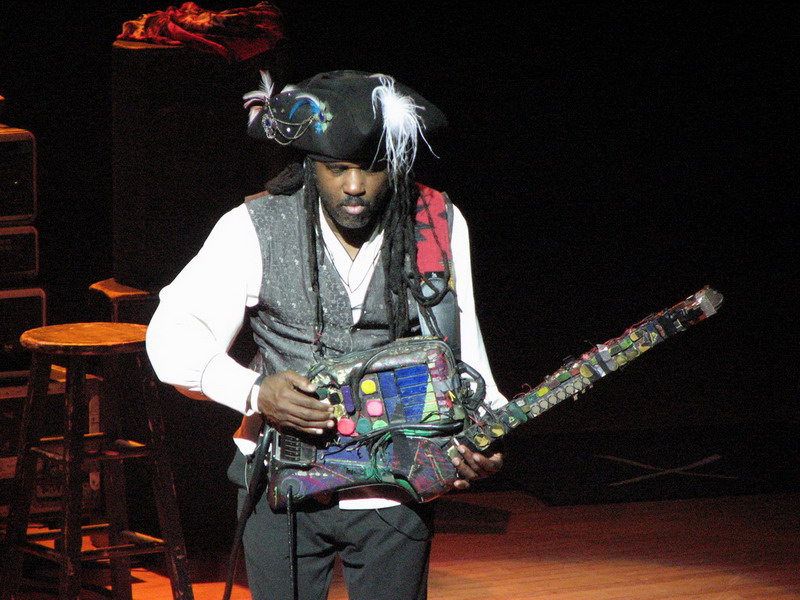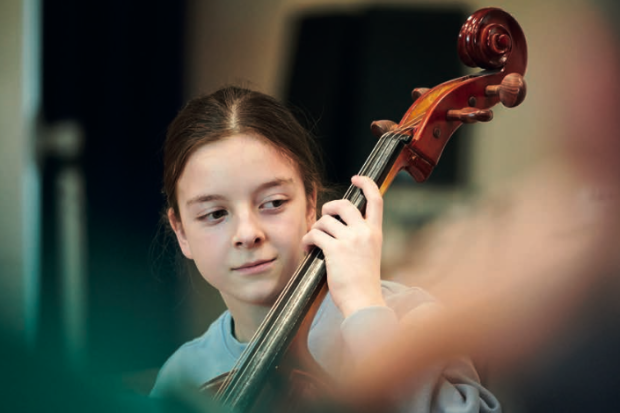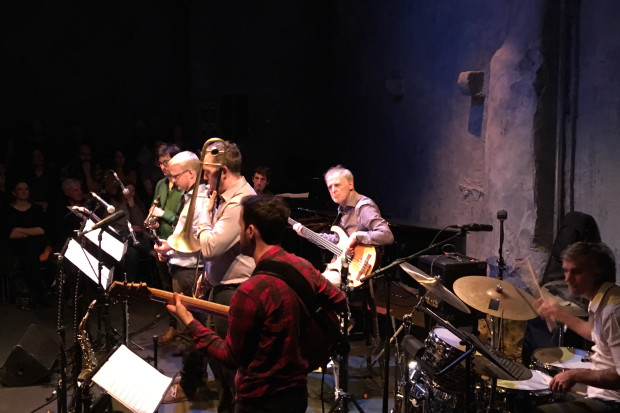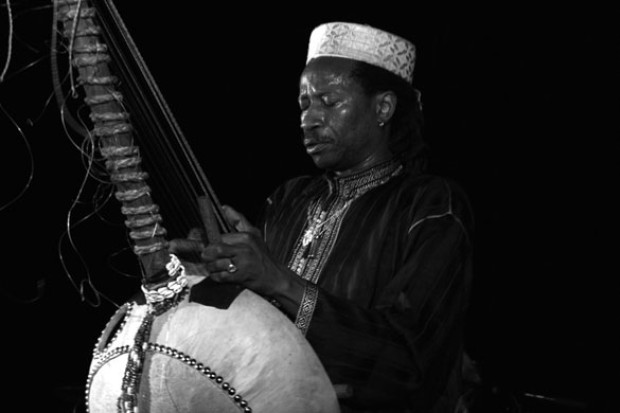
Keeping Up the Energy
Rocket Science is the fourteenth Flecktones studio album, welcoming back original member Howard Levy on harmonica and piano, alongside leader Béla Fleck and brothers Victor Wooten (bass) and Roy ‘futureman’ Wooten on percussion and ‘drumitar’ — his own invention that enables him to play electronic drums with his fingers.
It’s hard to imagine how much more life is in this band after so many tours and Grammy awards, yet the re-addition of Levy seems to inspire the quartet to push for new material while reconciling the classic Flecktones sound. Levy’s harmonica playing is astonishing throughout, his piano playing perhaps less so, but he — more so than Fleck or Victor Wooten — seems to be able to transcend virtuosity in any situation. This is not to say that the others don’t at times, but there is the acute sense that, in particular, Fleck’s banjo and Wooten’s bass maintain a sonic and even emotional plateau, at times bordering on disengagement.
Furthermore, Levy’s compositions are fresh and exciting, not relying on tried and tested Flecktones paths. ‘Sweet Pomegranates’ is a highlight, and both a bass feature and banjo solo seem to be energised by the unpredictability of the piece, in a way that is not always apparent on other Fleck tracks like ‘Gravity Lane’, ‘Prickly Pear’ and ‘Falling Forward’, all of which fail to build on their initial promise.
Fleck is sometimes accused of writing pieces for the band that sound like orchestrated banjo etudes. Listening to Rocket Science, it’s easy to understand why — he clearly composes on the banjo. The exception is the second last track, ‘Falani’, which is based on a hypnotic rhythm that could easily have been picked up on Fleck’s recent African odyssey, documented in the film ‘Throw Down Your Heart’ (a trip that aimed to both liberate the conception of the banjo from what he calls the ‘white southern stereotype’ and to reveal the roots of the instrument by visiting Uganda, Tanzania, Mali and Gambia, performing with legendary musicians like Oumou Sangare and Toumani Diabaté).
Having said that, the individual virtuosity on showcase here more often than not makes up for any perceived lack of vision. In truth, the Flecktones are a live band, formed as a result of a once-off television performance. Fleck, in particular, has brought the standard of banjo performance to new heights, and is a true innovator.
In this context, it almost seems that the recording is there to remind people how outstanding the four musicians actually are, and this also explains why the music is more interesting towards the end of the album (referring to how the role of the recorded album has changed, it‘s a common observation now to refer to the CD as the ‘new business card’).
Put simply, the Flecktones need to be seen in the flesh, where these autopilot moments will surely be fleeting. Luckily that is possible (although the show is almost sold out) when the quartet performs at the National Concert Hall, Dublin, on 17 January.
Published on 9 January 2012
Patrick Groenland is an Irish guitarist and composer. Having studied at the Berklee College of Music, Boston, he is now based in Dublin. www.patrickgroenland.com















